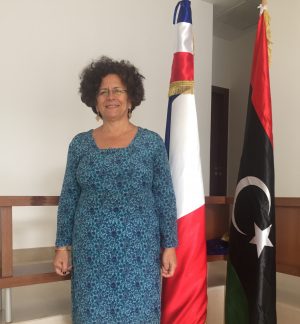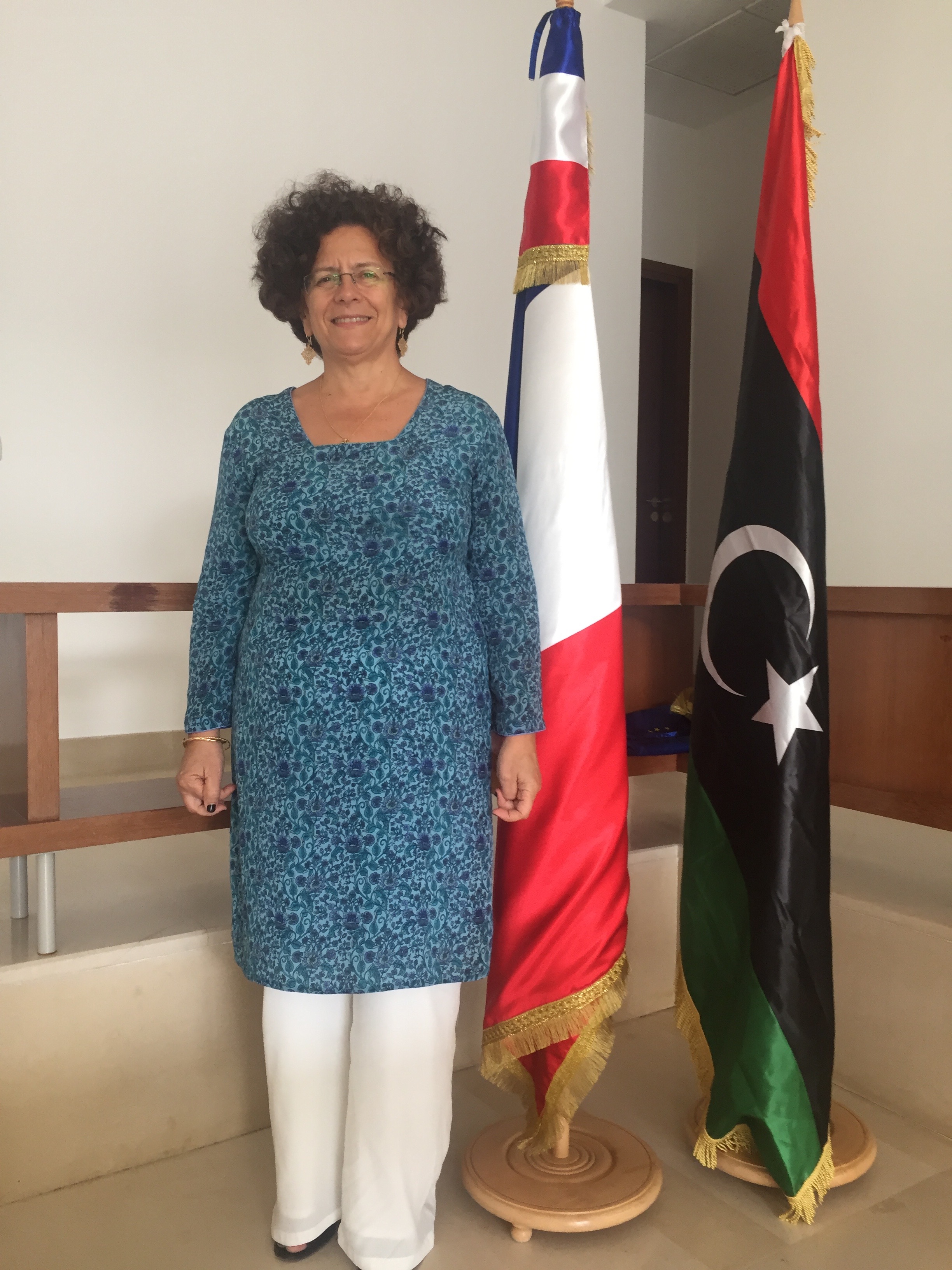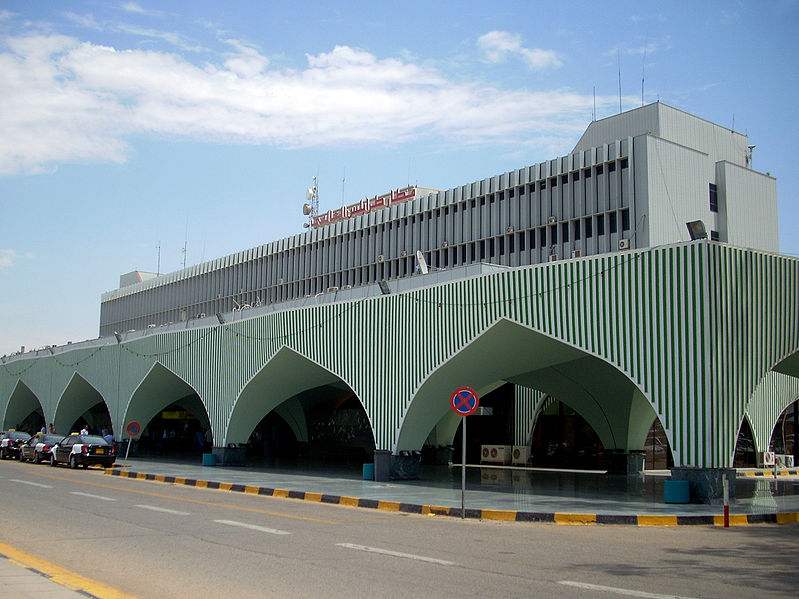By Michel Cousins.

Tunis, 11 October 2016:
France remains fully committed to the Libyan Political Agreement (LPA) and has no intention of trying to make any changes to it according to France’s new ambassador to Libya.
“I can tell you that the Skhirat agreement remains our sole point of reference, ambassador Brigitte Curmi told the Libya Herald. France has no Plan B in hand she said in her first interview with the Libyan media. The LPA remains “the only framework to find a solution to the crisis in Libya”, she insisted, brushing aside suggestions following last week’s meeting on Libya in Paris that France was looking at changing it.
There was no question of replacing it; it would be like opening Pandora’s Box, she stated. It would only exacerbate tensions between Libyans.
“The Skhirat agreement is an inclusive process”, but it can be implemented “with flexibility and pragmatism in such a way that leads to greater representation of all those who feel marginalised.
The French government’s goal, Curmi said, “is to promote a spirit of compromise in Libya”.
Flexibility and compromise were the thinking behind the meeting on Libya in Paris last week to which Libyans were not invited.
The reason for that, she said, and why there was no official declaration afterwards was because the aim was to gather those countries with influence on the various parties in Libya.
In addition to Germany, Italy, Spain, UK and US, France also invited Egypt, Qatar, Saudi Arabia, Turkey and the UAE to the meeting.
“The Paris meeting on Libya was informal. Diplomacy sometimes has to use small, informal meetings, where the sole aim is, in difficult circumstances, to facilitate an exchange of views. The Paris meeting was purely a working meeting, gathering around the table countries that can help the Libyans and the Skhirat process.”
After the New York declaration on 22 September by 26 states and regional and international organisations, the Paris meeting followed absolutely the same spirit, the ambassador explained. There was no intention at all of excluding the Libyans, she stressed. Indeed, France had been the first European country to invite Faiez Serraj, the head of the Presidency Council, for talks with President Francois Hollande as well as with Foreign Minister Jean-Marc Ayrault and Defence Minister Jean-Yves Le Drian. The reason for the meeting, she said, was that after Serraj’s visit to Paris on 27 September “it became clear to the French authorities that it was necessary to do everything to avoid the escalation of violence and push the policy of Libyan compromise as part of the Skhirat agreement”.
In concrete terms, she further explained, the participants discussed reorganisation of the Libyan security forces under the authority of the Presidential Council and the means of broadening consensus. Everyone had to find their place in Libyan institutions.
Looking at the wider picture, Curmi warned that Libya had “at all costs” to avoid further military escalation. “Dialogue has to prevail over weapons”, she said, because Libyans were exhausted and really want to put the crisis behind them..
At the Paris meeting, the countries attending discussed how they could help the Libyans to achieve compromise. As to the inclusion of Saudi Arabia, “this is a country that is able to talk to all stakeholders. This is why it seemed important to us to invite them”.
France welcomed Libyan efforts fighting terrorism, “notably in Sirte” and “all over Libya”, she said. But “the divisions between the Libyans don’t help in this matter and only benefit the terrorists.”
The best way to fight terrorism was through unity. That also meant that all Libya’s legal institutions – the Presidency Council, the House of Representatives and the State Council – had to carry out their obligations under the Skhirat agreement “and work together for the good of the country”.
Asked about a decline in pro-French sympathies in Libya in recent months, Curmi said that this was not her impression since being appointed.
“First of all, the most important thing is for the Libyans to be pro-Libyan”, she stated. “The Libyans I’ve already met want the country to improve. They count on us, as on others, to accompany them in that direction. That is why I’ll soon be going to Tripoli to discuss with the authorities the best way that France can help the Libyan people.” France “has been and will always stand by” the Libyan people, Curmi said.
Libya is a country in transition, Curmi added, and a transition “is not done in a day”. Resolving Libya’s crisis had to be done through dialogue between Libyans. France and all the other countries of the international community could only accompany the country in its transition.
In France’s case that would be seen in a number of areas, including healthcare and training, the ambassador said.
Regarding the former, the French government had already provided medical supplies on an ad hoc, emergency basis, for different Libyan cities, such as Benghazi and when foreign minister Jean-Marc Ayrault visited Tripoli in April, and this would continue, she stated. France was also organising in Tunis a special operation with a Franco-Tunisian-Libyan medical team which would shortly start treating combatants wounded in Sirte against Islamic State terrorists.
Altogether since the start of 2016, the ambassador pointed out, France had provided over a million dollars in emergency humanitarian aid to Libya. France was also involved with other countries in the Libya stabilisation fund aimed at helping the Sarraj administration rebuild the country. Additionally, a new councillor would be joining the French embassy to develop Franco-Libyan cooperation.
As to training, there were already hundreds of Libyan studying and being trained in France, Curmi noted. This would continue.
“We are determined to continue to welcome Libyan students as much as possible. The investment in knowledge and training of Libyan youth are, I think, extremely important tools to ensure a bright future for Libya.”
Overall, despite the divisions within Libya at present, Curmi is optimistic. War and despair, she says, are not inevitable.
“I am confident that Libyans can overcome the current crisis, but I believe they can only do that if they work together in a spirit of brotherhood in which public interest outweighs particular interest.”










